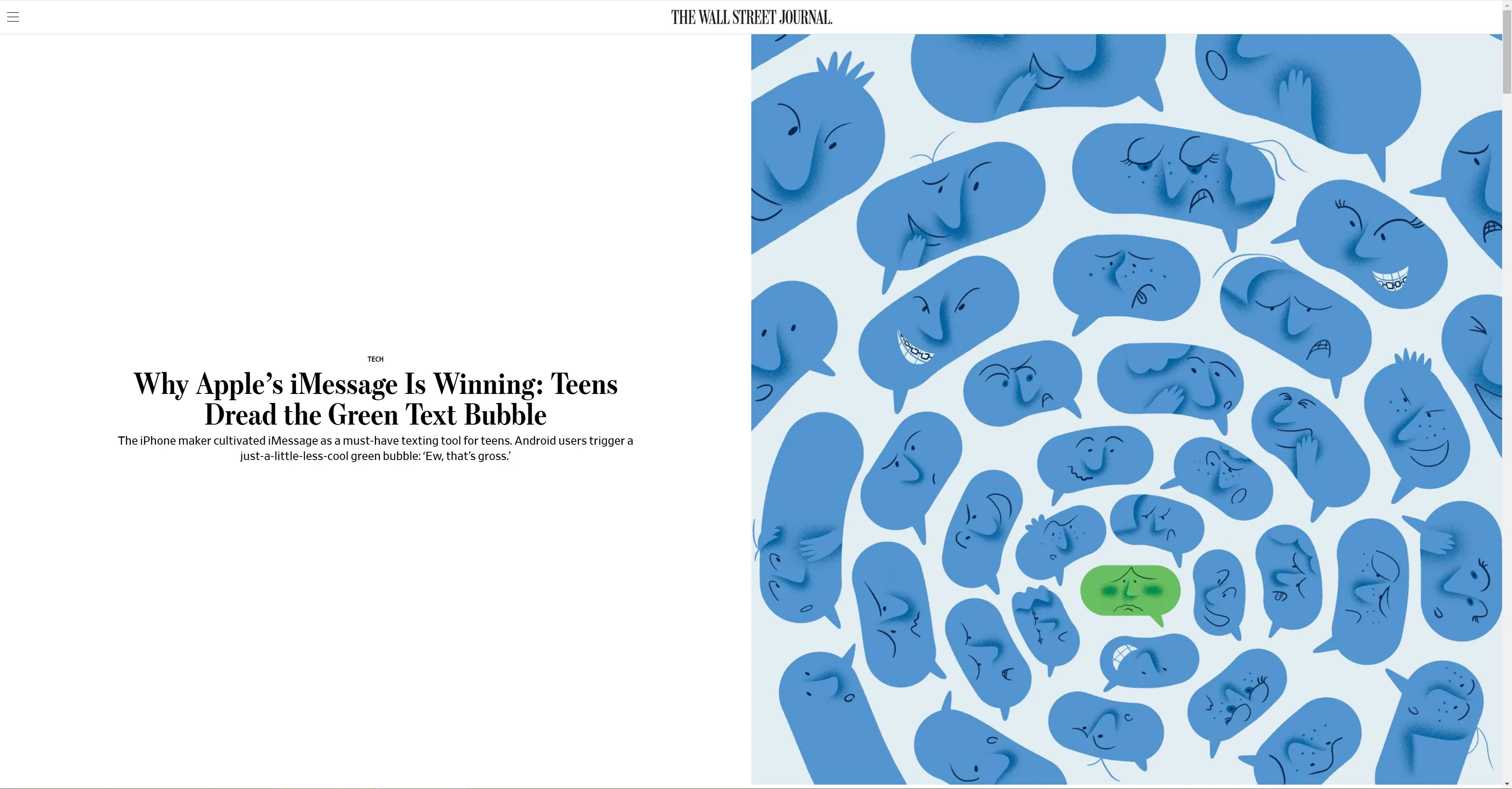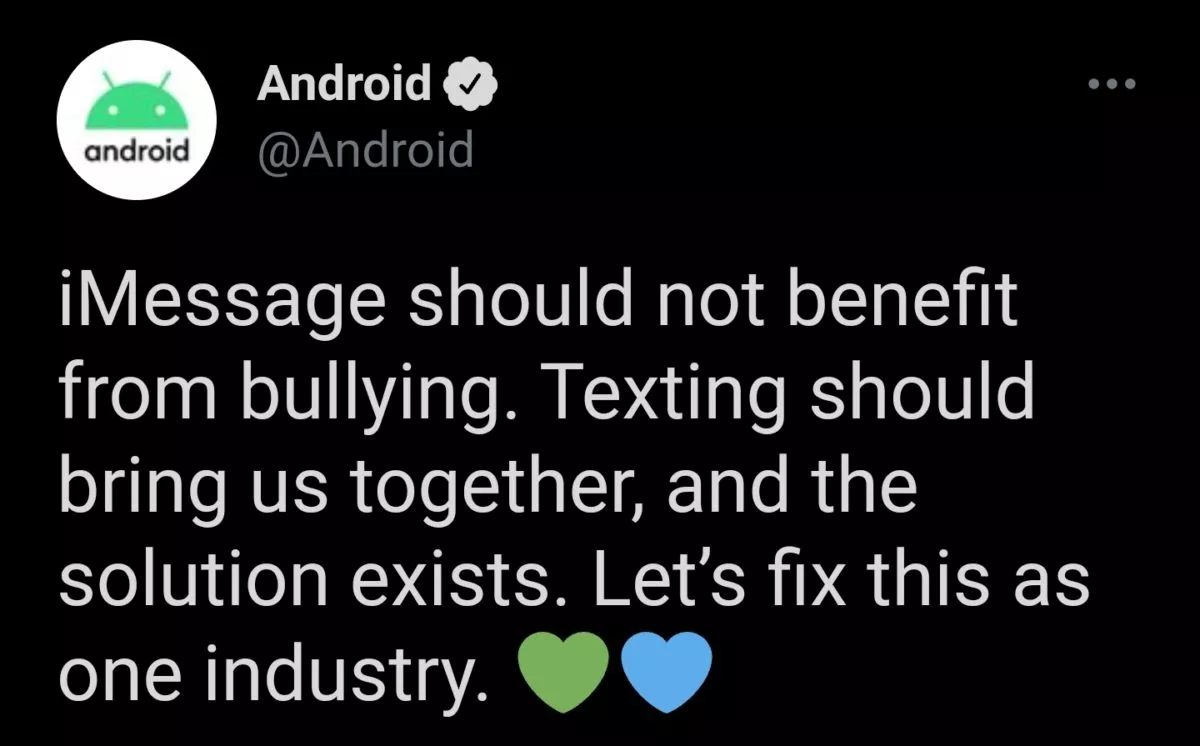On the morning of January 8, the Wall Street Journal published an article titled “Why Apple’s iMessage Is Winning: Teens Dread the Green Text Bubble, which pointedly pointed out some of the problems with Apple’s iMessage instant messaging application: Apple users use the blue text bubble by default in iMessage, and because Apple forces Andriod devices to use SMS (short message service) instead of sending messages over network data, Android devices are not able to send messages over the network. Android users’ messages in iMessage are displayed in a green bubble because Apple forces Andriod devices to use SMS (Short Message Service) instead of sending messages over network data. “The “blue/green bubble” difference has caused teens with Android phones to be discriminated against in social activities – “never date a green texter.

On January 9, Google SVP Hiroshi Lockheimer gave his opinion on this, criticizing Apple for apparently exploiting this “peer pressure” and “bubble bullying” around iMessage “peer pressure” and “bubble bullying” to strengthen its position in the market.
For a company that makes humanity and fairness a core part of its marketing, it is dishonest to use peer pressure and bullying as a way to sell its product. In fact today’s communication service standards (meaning RCS) are perfectly suited to address this blue-green bubble issue.
Meanwhile, both Google and Hiroshi Lockheimer are calling on Apple to adopt modern RCS communication standards in iMessage: unifying the experience of iOS and Android users to eliminate the “green bubble discrimination” of Android users.

What is RCS? It’s called Rich Communication Suite - Rich Communication Standard and is part of the latest advanced messaging standard. In addition to text messaging, RCS supports high quality image messaging up to 10MB by default, group chats, location sharing, and even video calls, and the service also supports sophisticated features such as read receipts (like the read feature of Pinning) and typing indicators (the “other party is typing” feature of WeChat). As the latest communications standard, RCS is supported by 55 mobile operators (including China’s three largest carriers) and 11 manufacturers (well-known companies such as Asus, HTC, Lenovo, LG, Huawei, Samsung and ZTE).
After a previous tweet sparked heated debate, Hiroshi Lockheimer again explaining his proposed solution in detail on Jan. 11, harshly accusing Apple of “hindering the development of the communications industry”:
We’re not asking Apple to make iMessage available on Android.
We’re simply asking Apple to support the industry standard for modern messaging (meaning RCS) in iMessage, just as they supported the old SMS/MMS standard.
Supporting RCS will improve the experience for iOS and Android users. Yes, RCS will also improve the iOS user experience and privacy.
By not integrating RCS, Apple is holding back the industry and hindering the user experience for Android users and their own customers.
Apple has not responded to the Wall Street Journal or Hiroshi Lockheimer, but a small quote from a 2013 email from Federighi, Apple’s chief software executive, may reflect Apple’s attitude.
In the absence of a strategy to become the primary messaging service for (the) bulk of cell phone users, I am concerned the iMessage on Android would simply serve to remove (an) obstacle to iPhone families giving their kids Android phones.